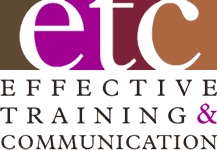Have you ever been at a COSE or some other business networking event and heard an amateur networker deliver an ‘Elevator Speech from Hell’? I know I have. Lots of times. You wanted to hit the emergency stop button and escape that elevator fast.
They’re too long, too technical, too unfocused and too boring. In that brief opportunity to make a good first impression on strangers, those amateurs annoy and turn off people instead. That’s why I hate Elevator Speeches … and so should you.
But, what should you do if your Elevator Speech approaches the ones from Hell? You’re going to be at lots of events where people will ask ‘What do you do?’ and you need an effective, efficient and engaging response to that question.
First, elevate your elevator speech – take it to a higher floor. Make sure it’s:
- Listener-Centric – aimed at the listeners with a high level of interest for them.
- Easy to understand – no confusing acronyms, terms or buzz words.
- Benefits-rich – emphasizing who benefits rather than listing a string of facts or feature statements.
- Interactive – helping to create a dialogue rather than a monologue by encouraging and responding to questions.
- Concise – short enough to maintain interest and still accomplish its objective.
- Physically energetic – focused eye contact, appropriate gestures and a smile on your face.
- Vocally enthusiastic – delivered with strong volume and inflection, yet at a pace comfortable for the listeners.
- Confident – projecting that you believe in what you’re saying and want them to as well, but never sounding cocky.
- Practiced – but not memorized, so it sounds spontaneous and natural.
And strive to make sure it passes the ‘3-E’ test:
- Effective – are you saying the right things to the right people for the right reasons
- Efficient – are you saying those right things in the right way, with vocal and physical energy.
- Engaging – are you making the message compelling, interesting and memorable.
Once you’ve elevated yours and made the new and improved version work for you, take it to the top floor by converting it into an ‘Escalator Speech’. Assume you’re going down on the escalator as someone passes by you going up on the other one. You only have a few seconds to communicate. So, your Escalator Speech is an even more concise version of your Elevator Speech.
Mine is ‘I empower business leaders to communicate confidently’ Short, simple and likely to generate some questions when the other person turns around and follows me back down.
I recently responded to a reader who liked my take on this topic and offered his own sample – ‘I’m a communication skills expert’. While it’s short and concise, it’s still all about him, not them. And the term ‘expert’ has some ego-centric baggage connected with it, which can be a turnoff for some people.
I asked him about the results someone achieves after working with him and suggested he build his statement around that. It could be ‘I empower (or energize – either verb is better than the wimpy ‘help’) people (but, better to define his target market here, such as ‘sales professionals’, ‘entrepreneurs’ or ‘executives’) to communicate with more power (or success or impact, etc.). So, with some polish and practice, it became ‘I energize executives to present with more impact’. Crafting something that concise is a lot of work, I admit, but it’s well worth the time and effort if you want to make it to the top floor.
So, while I still hate typically lame Elevator Speeches, I do love concise and interesting Escalator Speeches … and so should you.
(This piece first appeared in the Greater Cleveland Partnership’s Council on Smaller Enterprises ‘Mind Your Business’ blog as part of my on-going resident expert series).

